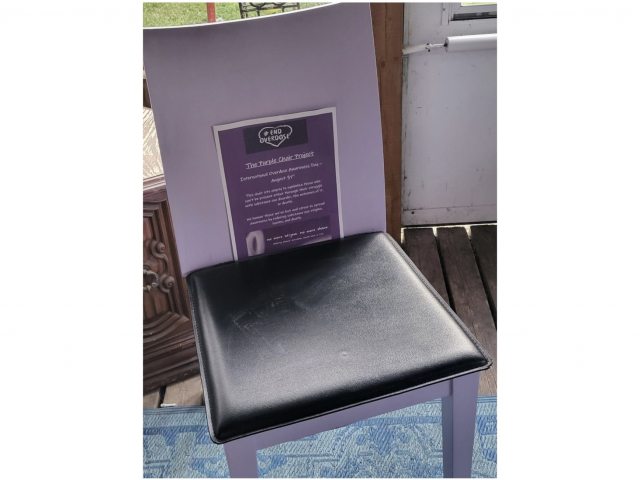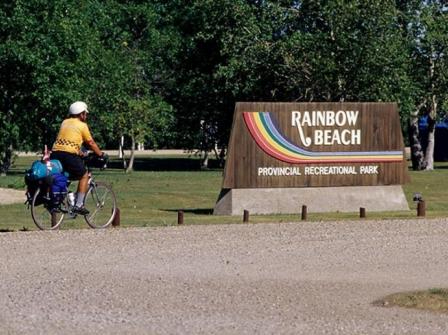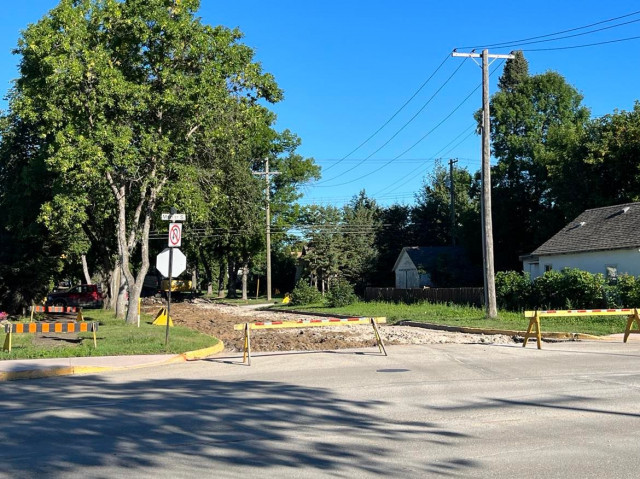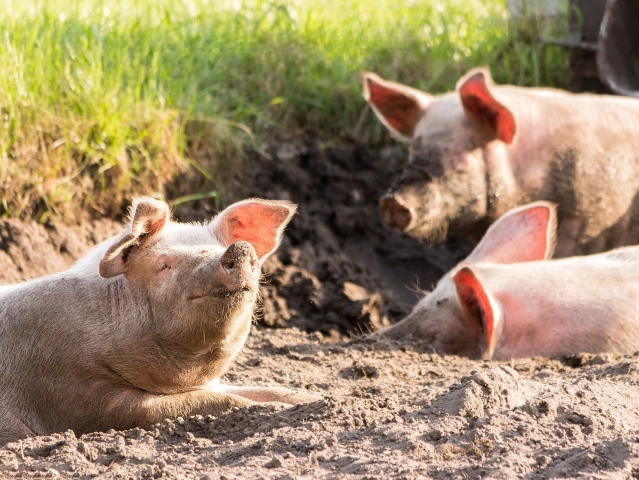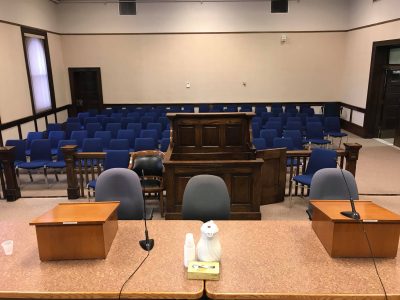 NewsNow
NewsNow
The Government of Manitoba will be providing residents with financial help to deal with inflation and rising costs.
Premier Heather Stefanson made the announcement today saying that the province will be spending $87M on, what she calls, a family affordability package.
As part of the package, families with children and a household income of less than $175,000 in 2021 will receive a benefit cheque of $250 for the first child and $200 for each additional child.
Seniors with less than $40,000 in family income who claimed an education property tax credit in 2021 will receive a benefit cheque of $300.
Cheques will be mailed to eligible individuals in late September.
More information can be found on the Province of Manitoba website.
- Details
- Contributed by Nicholas Iatropoulos
École Macneill is ready to welcome students back for another school on Wednesday, September 7th.
Principal Monique Lefebvre says that the building is in great shape.
"There [weren't] any capital projects that were on the go this summer, so right now the school is sparkling because our custodian, Mr. Taylor, has spent all summer cleaning and buffing and waxing the floors and cleaning the walls... The place just looks really shiny and sparkly," she adds.
According to Lefebvre, COVID-19 wasn't a major factor in this year's back-to-school preparations, since most of the COVID-19 restrictions have been lifted earlier this year.
"We're looking forward to kind of a return-to-normal start to the school year," she adds.
Lefebvre says that the ongoing shortage of French teachers in the province won't be affecting the school this year, but could affect it next year.
"We have a good staff this year at École Macneill and within Mountain View School Division we've managed to fill all our French-speaking positions," she adds.
Monique Lefebvre went on to say that even though they will be teaching the same curriculum, as usual, they will be incorporating more technology into it.
"Especially with the Microsoft Office, our students are really getting on board.... We have... [an] educational assistance [with a passion for] technology... She's really come on board to teach the students a lot of skills that were needed during COVID, but we can see the benefits of continuing to teach those... technology skills, even at the younger grades," she adds.
According to Lefebvre, they're hoping to offer a lot more extra-curricular activities this year, which she says were sorely missed by both students and teachers.
"[We'll be] getting back to running club, flag football, soccer, track and field, volleyball, basketball, badminton... and any other interest that teachers want to share with their students," she adds.
Lefebvre says that the first day of school will be mainly focused on building relationships and reviewing material from last year.
- Details
- Contributed by Nicholas Iatropoulos
August 31st is International Overdose Awareness Day, and Peer Connections Manitoba is working to bring attention to the issue. Community Peer Support Worker Eleanor Snitka says Peer Connections is participating in The Purple Chair Project.
"I've painted a chair purple and I'm going to take it to Under One Roof. I'm going to put our poster with it talking about the significance of Overdose Awareness Day, and that chair will always be there for people if they need."
The Purple Chair Project was started by a family in Rochester, who lost their son to a drug overdose. The chair is intended to sit empty to symbolize those who can't be present through their struggle with substance use disorder or the outcomes from it, including death.
Snitka talked about the origin of the project,
"So they set a chair aside, and they said there'll always be an empty chair in our house, so if anybody ever needs to come in, or use the chair, but at least, our chair will always be open for someone."
Snitka says that acceptance, inclusion, respect, and no judgment are all part of Peer Connections values.
"Sometimes there's more stuff going on in their life, that caused them or maybe they found out when they used something for the first time it made them feel kind of better, so I want people to know that we have to get rid of that stigma, and accept people for who they are, and be there when they're ready to get help."
Anyone looking for more information can reach out to Peer Connections at (431) 345-0353.
- Details
- Contributed by Sam Brownell
The Manitoba Government has announced that entry to all provincial parks will be free for the long weekend. Vehicle permits won't be required from Friday to Monday, but regular fees will still be in place for campgrounds.
Environment, Climate, and Parks Minister Jeff Wharton made the announcement today.
“This long weekend may mark the start of the transition from summer to fall, but there’s still time to participate in your favourite warm-weather activities and with free provincial park access this weekend, there’s no reason not to.”
- Details
- Contributed by Sam Brownell
The first block of 10th Avenue Southwest will be closed on and off for the next three to four weeks, according to the City of Dauphin.
Parts of 1st Avenue Southwest will also be closed at times for excavation and base work.
The city asks that people avoid the area if possible.
- Details
- Contributed by Sam Brownell
Statistics Canada released their July 2022 model-based principal field crop production estimates and it appears that lots of crops are thriving after a down year in 2021 mostly due to drought conditions. A few of the highlights from the estimates are below.
Canola:
Across the country, canola production is expected to increase by 41.7% to 19.5 million tonnes thanks to improved growing conditions on the prairies combined with higher yields than in 2021.
In Manitoba, a 31.5% increase in yields to 43 bushels an acre is expected which will help mitigate an anticipated 3.8% drop in harvested area to 3.3 million acres. Overall, 3.2 million tonnes of wheat are expected to come from the province which means an increase of 26.5% from last year.
Soybeans:
Soybean production in Canada is expected to rise by 1.8% to 6.4 million tonnes with yields of around 45.3 bushels an acre.
For Manitoba, soybean production is forecast to go up by 13.6% to 1.1 million tonnes. Similarily to canola, harvested area for soybeans is expected to go down but will be helped by a 32.5% increase in yields to approximately 35.9 bushels an acre. An improvement in moisture conditions for soybeans is noted as the main reason for the increase in numbers.
Wheat:
Nationally, a 55.1% increase in wheat production to 34.6 million tonnes is expected. This is due to higher than anticipated yields of 51.1 bushels an acre and a large increase in harvested area to 24.9 million acres. Those represent a 41.6% and 9.4% increase, respectively.
Harvested area for wheat in Manitoba is expected to go up to 3.2 million acres while yields are anticipated to grow by 20.5% to 57.7 bu/a. Total wheat production for the province is to rise by 34.2% to 5 million tonnes.
One of the main factors in the crop numbers going up from last year is higher-than-average precipitation in the prairie provinces combined with moderate temperatures. This resulted in much better growing conditions than in 2021 which was characterized largely by drought. Crop conditions in Manitoba have also been much better than in 2021.
Barley and Oat:
Higher yields for barley are expected with an increase of 57.7% from last year which will offset a 14.8% decrease in harvested area to 6.3 million acres. Production is expected to rise by 34.3% to 9.3 million tonnes this year. Oat production is forecasted to see a rise of 59.2% to 4.5 million tonnes. As well, harvested area is to go up by 10.6% to 3.2 million acres and yields are expected to be around 90.2 bushels an acre, representing an increase of 44.1%.
According to the estimates, the only crops to see a decrease in production from 2021 to 2022 are Winter Wheat (-15.7%) and Fall Rye (-4%).
- Details
- Contributed by Alec Woolston
The Government of Canada announced earlier this month that it will support the development of multi-use trails in Neepawa with an investment of up to $550,000.
Denis Saquet, manager of operations for the Town of Neepawa, says that they're always delighted to see funding come their way.
"It's a great opportunity for us to expand our already existing trail network, so it'll give us the opportunity to expand additional trails. We're always pleased and excited to work with the federal government on these projects," he adds.
According to Saquet, Neepawa's existing trail network contains roughly five kilometres worth of trails and they're looking to expand it by another two kilometres.
Saquet says that they are currently in the process of conducting First Nation consultations as required by the federal government.
"We have some consultations going on now with the Manitoba Métis Federation... just to ensure that we've done all our due diligence with them," he adds.
Saquet went on to say that the consultations have been going well so far and that they're aiming to make the trails available during all four seasons.
"Our target is definitely more of the summer three seasons, there, but we're aiming and targeting to... get a winter season in place. Our facility site's just not as conducive or as friendly for winter use at this time just because it was a borrow pit as part of our construction site, so it's quite barren. [However], a big effort of this will be the revegetation of the site and we're hopeful and optimistic that once the revegetation occurs, we'll see more winter use," he adds.
According to a news release from the federal government, in the summer, the trails will be available for cycling and walking, and in the winter, the trails will be used for fat biking, snowshoeing and cross-country skiing.
It also says that this project will provide more options for residents of Neepawa and the surrounding area to stay active and enjoy nature year-round and that the Town of Neepawa is also contributing $137,500 towards eligible costs for the project.
Denis Saquet expects construction to begin in 2023.
- Details
- Contributed by Nicholas Iatropoulos
Carter Taylor-Luke is running for Dauphin City Council in the municipal election on October 26th. He says he was convinced to run by his family and friends, who think he'd do a great job representing the community.
"A lot of people actually decided for me that they think it would be a good idea for me to run because they truly believe that I would be best suited for the position, so I decided to take it upon myself to try to lead others as they ask."
Taylor-Luke says that while lots of his ideas are for a bigger area than just the City of Dauphin, there are a few issues that hit close to home.
"I'll be completely honest the ideas I have are more country-wide, however, I do have to start somewhere so City Council is a good place to start. When it comes to Dauphin, crime is a huge issue. I know a lot of people are getting jumped and beaten, drugs are a massive problem, and yet we don't have an actual rehabilitation center, and that's something that we might need to look into for Dauphin."
Taylor-Luke joins a packed race for City Council, and there's still three weeks until the September 20th registration deadline.
- Details
- Contributed by Sam Brownell
The federal government is investing $45.3 million to continue its efforts to keep African Swine Fever(ASF) out of the Country. Manitoba Pork General Manager Cam Dahl says that while ASF Doesn't pose a risk to humans or other animals, the effects of an outbreak would be catastrophic for the industry.
"Other countries close off if you have cases of African Swine Fever and we've seen that in countries like Germany and Poland that used to be strong exporters, and don't have a market for their product anymore. So if it ever were to arrive in Canada we would instantly lose all of our export markets, and in Manitoba, 90 percent of the pork we produce is exported."
Dahl says the money will be distributed in a way that will strengthen prevention efforts already in place.
"Showing Collaboration between the industry efforts, around things like biosecurity to prevent the disease from reaching us, as well as with an organization like the Canadian Food Inspection Agency. So it's a really positive announcement aimed at preventing what would be a multi-billion dollar disaster."
$23.4 million of the investment will support the sector’s already robust prevention and mitigation efforts, $19.8 million will be used to support the efforts of the Canadian Food Inspection Agency, and $2.1 million to enhance the work of the Canada Border Services Agency on border control activities.
- Details
- Contributed by Sam Brownell
Joe Houston is running in the municipal election to become a councillor on Dauphin City Council.
Houston lived in the R.M. of Dauphin for almost twenty years and decided to move to the City of Dauphin when he bought a home ten years ago.
"My grandmother raised me and I lived out there with her. I felt that it was time to get more connected with the community... I worked in Dauphin my entire life since I was sixteen [and] went to school here... I lived just out by the airport [and it felt like] I was one step away from everything, so I just wanted to be right in town," he adds.
Houston says that this will be his second time running for council and that he can bring a new view to the table that doesn't currently exist.
"Specifically, I want to talk about [the] cultivation of small [businesses] from within... If you're in the business community, people come and ask you questions... I don't know [if] we have the focus inward currently. I'd like to see more dedication to growing people's ambitions from within our own community to help fill the needs that exist within it," he adds.
Joe Houston feels that he made a very good point of listening and that people should vote for him because of his experience of working in the community and opening a small business.
"I think I understand what growth looks like for Dauphin... I believe that we are on the right track, but... we need even more new ideas to push us forward and I feel I can bring those to the table with the support of the people who vote for me," he adds.
According to Houston, growth is very important to him because Dauphin's population hasn't grown by a significant amount since he's lived here.
"I spend my time here looking at all the amazing amenities and... attractions that we do have and I wonder what are the missing pieces that [would get] that next step of growth happening for us. I think we're so close and there must just be that one next step we need to take," he adds.
Anyone interested in running for municipal office has until September 20th to register.
Election Day is set for October 26th.
- Details
- Contributed by Nicholas Iatropoulos
A Remembrance Day-style ceremony was held at the Lt. Col W.G. (Billy) Barker VC Airport in Dauphin last Saturday.
The ceremony, which included dignitaries and members of the Royal Canadian Air Force, was hosted by Local Historian Al Gray.
Two granite monuments were erected to pay tribute to the forty-nine airmen who lost their lives while training at one of Dauphin's two former air schools as part of the British Commonwealth Air Training Plan.
Both monuments have the history of the training plan etched on the front, with the names of the fallen airmen listed alongside their country of origin on the rear.
Janel Mann made her way to Dauphin from Battleford, Sask. to lay a wreath in front of the monument that honoured those who died at the No. 7 Bombing and Gunnery School.
"I was extremely honoured when Al asked me. I had met Al actually through some mutual-interest Facebook groups... about a year, maybe a year and a half, ago... Through that, Al and I exchanged some of this Dauphin information and memorabilia that I had... When he started putting this fundraising together, then he had asked if I would come... and he gave me the honour of actually laying a wreath in front of one of the memorials, which was a... real privilege actually... I'm very happy," Mann adds.
Mann says that she's the granddaughter of one airman and a great-niece to two other airmen.
She went on to say that her grandfather, Norman Folkersen, got his pilot wings from the No. 10 Service Flying Training School here in Dauphin.
According to Mann, Victor Folkersen, her great uncle and Norman Folkersen's older brother, was an observer navigator who got his observer wing from the No. 5 Air Observers School in Winnipeg. Throughout his training, he also did some bombing and gunnery training at the No. 7 Bombing and Gunnery School in the Dauphin area.
"[Norman and Victor's] younger brother was a mid-upper gunner with a crew called the Cradle Crew. They flew Halifaxes with 408 (Goose) Squadron," she adds.
Janel Mann went on to say that her great grandfather, Axel Folkersen, used to be the bank manager at the Bank of Montreal in Dauphin from 1935 to 1945 and that he helped support the victory loan through his work.
- Details
- Contributed by Nicholas Iatropoulos



